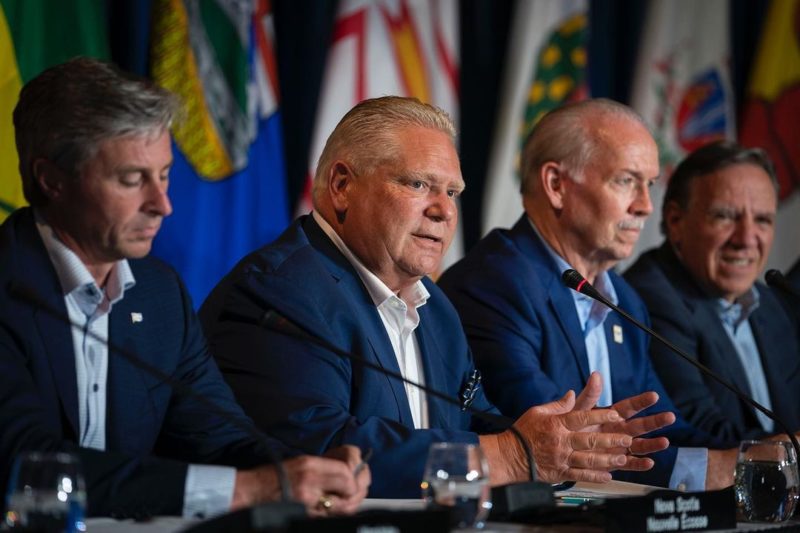Premier Doug Ford has announced his intention to alter the governing structures of Toronto and Ottawa by imposing a strong mayor system. At this point it’s not exactly clear what that will mean. So far, the Premier stated that mayors will be able to veto council legislation while 2/3 of a council will be able to override that veto. While little else of substance has been said the strong mayor system usually comes with greater authority over municipal appointments and budgets for the mayor.
The announcement
The announcement has engendered a fair bit of criticism. Former Mayor David Miller and Councillor Gord Perks have characterized the move as interference with local democracy. The announcement comes a few months before municipal elections and seems to have come out of nowhere. No consultation has been held.
Perhaps the critics are right, perhaps we ought to condemn the imposition of the strong mayor system on the basis of principle. For the sake of argument, however, let’s take a moment to look a little closer at what’s going on.
The Strong Mayor System

For starters, Toronto City Council has voted to work with Ontario to iron out the details of what this new system might actually mean. Premier Ford has suggested that the strong mayor system will help speed up housing construction. I don’t see how. Would the mayor be able to unilaterally change zoning? Bypass consultation? Skirt or cut regulations? Do we want them to?
Council’s vote to work with the province carried 23 to 2 while the mayor respectfully declined to speak on the issue. A tacit acknowledgement of inherit bias was refreshing. Refreshing enough to earn my confidence in obtaining new powers? While there are non-partisan arguments to be made for and against the new system, whether or not you want to give John Tory more power really is the question here. Mayor Tory seems poised to cruise to an easy victory and a third term. Call it premature, but unless some kind of all-star candidate tosses their hat in the ring in another 4 years, John Tory could win a fourth term. Don’t think these powers are going fall to a more left leaning mayor anytime soon.
Council hopes that it can use negotiations with the province over the strong mayor system to obtain other powers for itself. Strong mayor systems often give cities more jurisdiction over things like traffic safety, planning, housing and revenue raising. On first glance there’s reason to be optimistic. The City of Toronto is in desperate need of more revenue tools. An overreliance on property taxes puts Toronto between a rock and a hard place. With gentrification, speculation and condofication having propelled housing prices sky high, increasing taxes can threaten affordability for homeowners and renters alike. I don’t see the province doing much for wages and rent control anytime soon. The housing situation makes increasing property taxes politically difficult even though it’s the most important funding tool for the city. Without adequate revenue, the city can’t afford to do things for its residents.
New revenue tools can help but it seems unlikely that Ontario will let us have them. Toronto is already empowered to pass a vehicle registration tax, a tax the Fords built a career successfully repealing. Mayor Tory has chosen not to reintroduce it. Why would an anti tax premier grant Toronto more taxation powers and why would and anti tax mayor use them?
Finally, there’s the real elephant in the room: outside influence. A more powerful mayor means that the donors, allies and friends who influence the mayor will have more influence over the entire city. Is that what we want to see?









